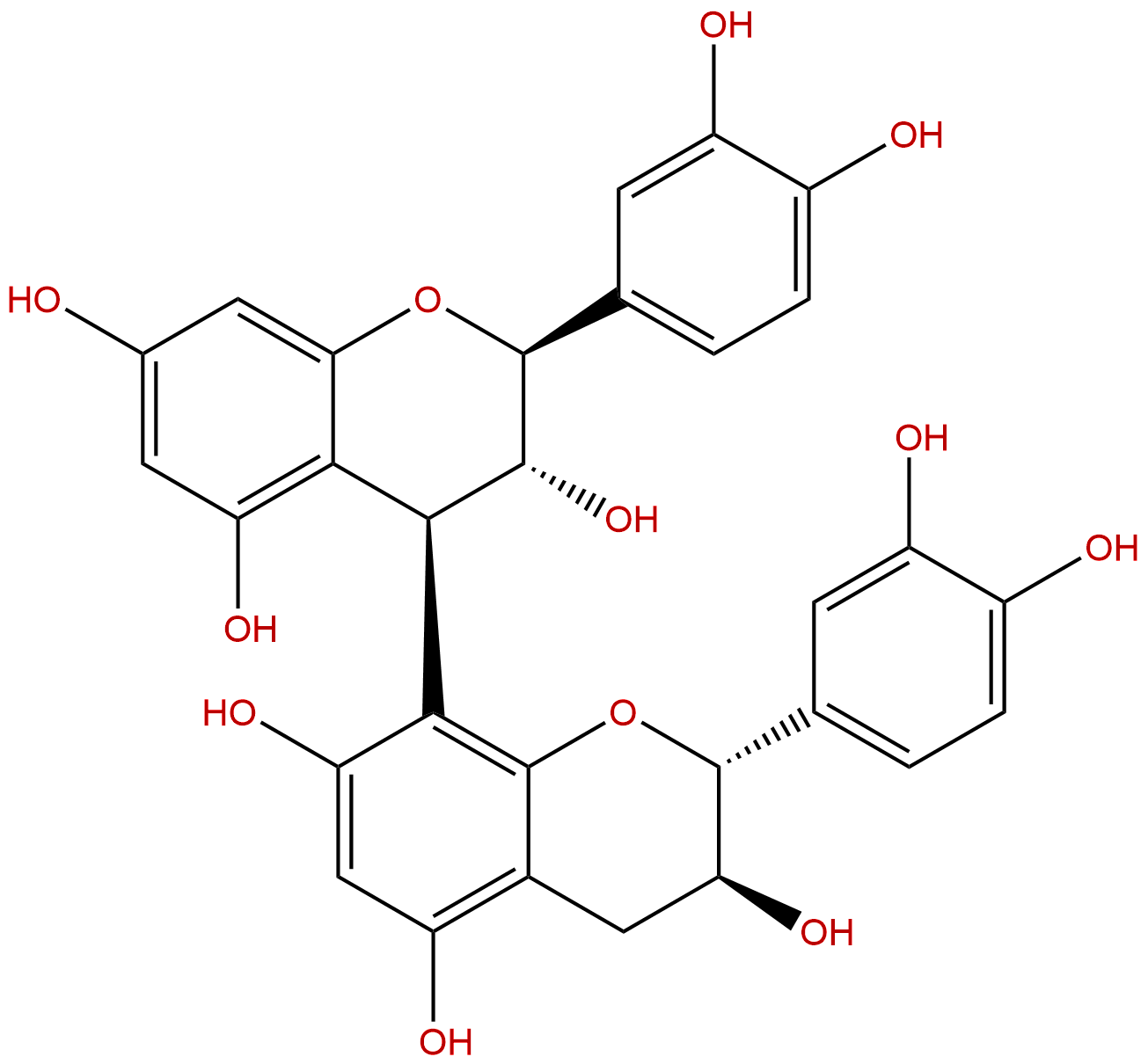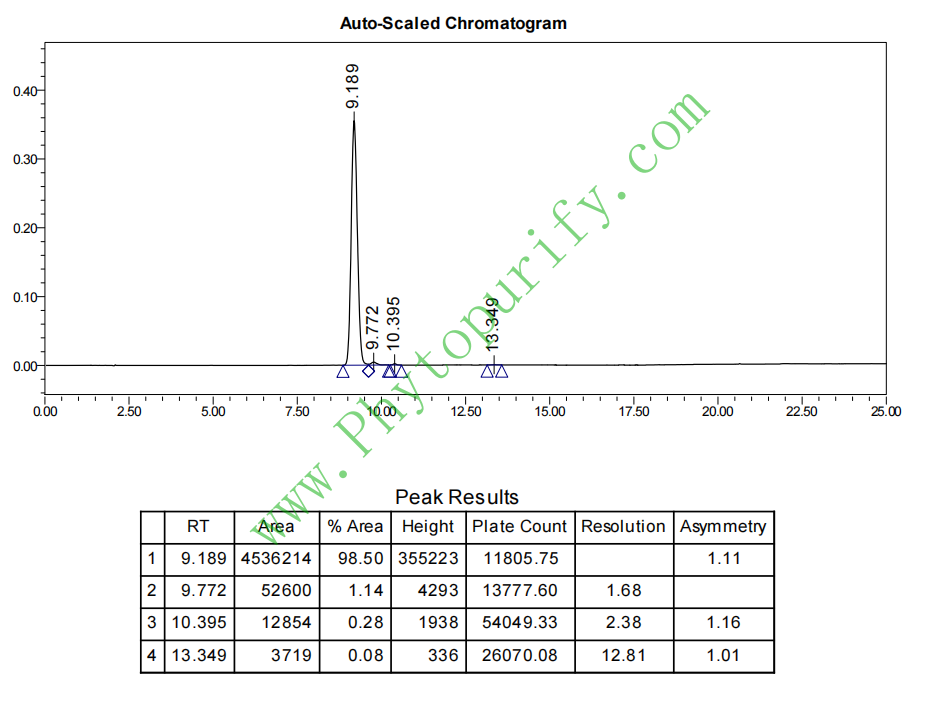
Procyanidin B3CAS No.:23567-23-9
|
||||||||||
 |
|
|
||||||||

| Catalogue No.: | BP1148 |
| Formula: | C30H26O12 |
| Mol Weight: | 578.526 |
Product name: Procyanidin B3
Synonym name: Proanthocyanidin B3
Catalogue No.: BP1148
Cas No.: 23567-23-9
Formula: C30H26O12
Mol Weight: 578.526
Botanical Source: Occurs in Salix caprea and Fragaria spp. Present in red wine. peanut skins
Physical Description: Powder
Type of Compound: Procyanidins
Purity: 95%~99%
Analysis Method: HPLC-DAD or/and HPLC-ELSD
Identification Method: Mass, NMR
Packing: Brown vial or HDPE plastic bottle
Storage: Store in a well closed container, protected from air and light. Put into refrigerate or freeze for long term storage.
Whenever possible, you should prepare and use solutions on the same day. However, if you need to make up stock solutions in advance, we recommend that you store the solution as aliquots in tightly sealed vials at -20℃. Generally, these will be useable for up to two weeks.
The product could be supplied from milligrams to grams, up to kilograms
Inquire for bulk scale.
Descriptions:
Procyanidin B3 (B3) prevents osteoarthritis (OA) progression and heterotopic cartilage formation, at least in a part through the suppression of iNOS, these results support the potential therapeutic benefits of B3 for treatment of human OA and heterotopic ossification.[1]
Procyanidin B3 is an inhibitor of histone acetyltransferase, B3 enhances the action of antagonist for prostate cancer cells via inhibition of p300-dependent acetylation of androgen receptor; B3 treatment inhibited acetylation-dependent prostate cell proliferation and expression of cell-cycle control genes, subsequently increasing cell death, indicating the functional importance of AR acetylation for prostate cancer cell growth.[2]
References:
[1] Aini H, Ochi H, Iwata M, et al. Plos One, 2012, 7(5):e37728.
[2] Choi K C, Park S, Lim B J, et al. Biochem J, 2011, 433(1):235-44.
[3] Ricardo-Da-Silva J M, Bourzeix M, Cheynier V, et al. Vitis -Geilweilerhof-, 1991, 30(3):245-52.
HPLC of Procyanidin B3
